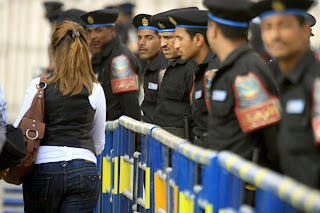Hooray! Here’s good news. So the New York City subway currently has a PSA campaign telling people facing harassment they can report it.

Which is better than no PSA campaign, but it places the onus on the person experiencing harassment to do something. Now, a new PSA campaign will encourage anyone who sees or experiences harassment to report it.
But next, we need a campaign telling harassers to STOP in the first place!!
“The MTA is changing its train announcement aimed at victims of inappropriate sexual conduct on subways, asking witnesses who see groping to also report the crime…
State Assemblywoman Deborah Glick pushed to have the messages changed after being concerned that the current announcements place the burden of reporting harassment solely on the victim.
“Sexual harassment is treated with a ‘boys will be boys’ shrug but it can be a humiliating, frustrating, and downright scary experience,” Glick told NBC New York in an email. “I thought if the MTA really wants people to ‘See Something, and Say Something’ then there is no reason that sexual harassment should not be included as well.”…
According to Glick, the new message will say, “a crowded subway is no defense to unlawful sexual conduct. If you believe that you have been the victim of a crime, or witness to a crime, notify an MTA Employee or Police Officer.”
Three cheers for Glick’s work on this initiative and also to HollaBack and New Yorkers for Safe Transit for pushing for this change.

